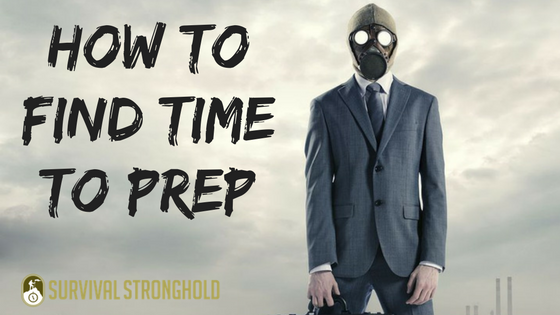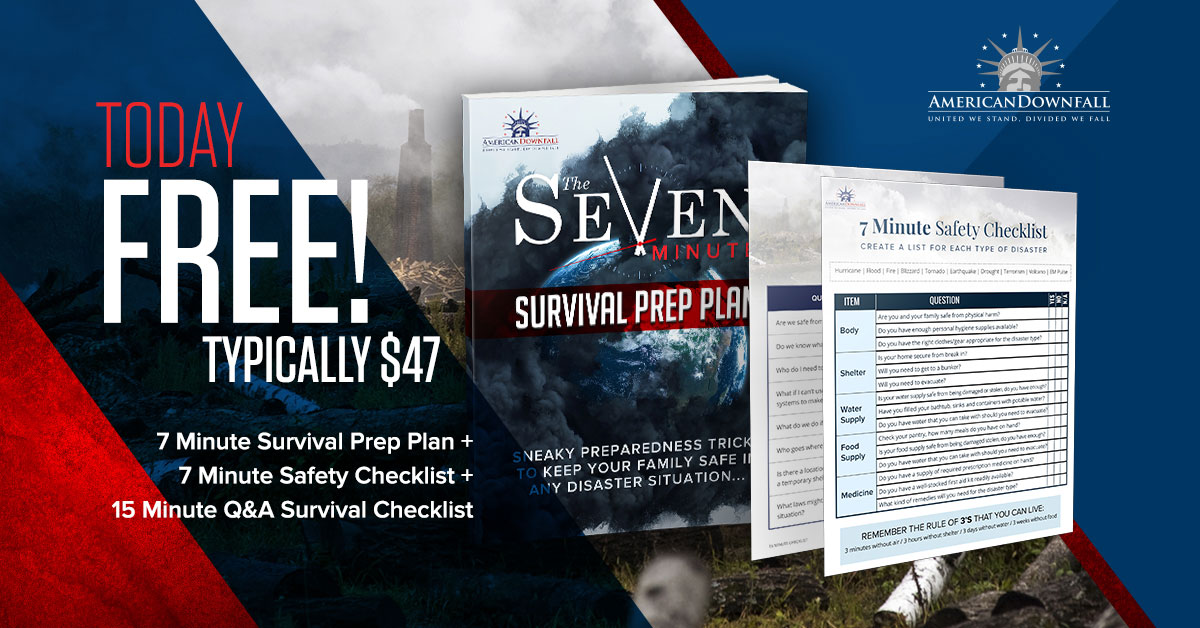There is so much we all need to be doing to prepare for come-what-may. It’s easy for us to sit around on this site and warn you of all the possible threats to our safety or survival, or to give you loads of advice on what you should be doing to prepare and get yourself ready.
Train in self-defense. Stock up on food and water. Learn how to hunt. Learn how to shoot. Plant a garden. Learn to tie knots. Learn how to preserve food. Learn wilderness survival skills. The list goes on and on.
We do realize that, if you’re like most modern adults, you probably have a job, a life, a family to attend to while you’re preparing. And while most of us would probably rather spend our time training and preparing, and that’s certainly something that would increase our odds of survival, most people simply have a day-to-day life to take care of. And that’s OK.
What you need to do is simply try to fit it into your life, rather than let survivalism take over your life and get in the way of your livelihood or personal relationships, two very important things you need now to be able to survive later. It’s all about balance, planning, and organization, and we’ve got some tips for you.
Prioritize
This is the most important aspect of finding time for preparedness. You need to think about everything you need to do, and everything you’d like to do, and choose which is most important to you. Again, you will probably need to put your job and your family at the top of the list. Don’t lose your focus on putting bread on the table now while you think about how to survive in a hypothetical food shortage! Besides, you can’t buy much freeze-dried foods or ammo if you don’t have a job.
Make a list of everything you have to get done in a day and in a week and a separate list of everything you’d like to get done for preparedness.
Then, prioritize which preparedness project is most important to your family. For most people, this will be getting a solid, reliable supply of food and water stored up. All you need to do is prepare for the short-term first, you can add more to it over time. This small perspective is good to have. Better to stock up on small supplies of everything at first, than to have a full armory and no food or water.
Also, think about what is most realistic to plan for in your area. You might need to prioritize self-defense and weapons training over gardening, for instance, if you live in an urban area, or if you live in a rural area, you will probably want to dig a garden, start raising some chickens and work on your hunting skills. If you live near the coast, tsunami or hurricane preparation will take precedence, while if you live in the Midwest, most likely you are going to want to prepare for harsh winter or tornados. Be sensible and realistic about what disasters you are preparing for, and which is most likely to happen to you.
Schedule Time
Once you have your list of everything you need to get done, it’s time to see if you actually have time for everything. For most people, making a basic daily schedule for each day of the week can be very helpful in determining if you actually do have time to get it all done.
A very easy way to do this is to write down every hour in the day for each day of the week, and allocate each one to a different task. If you spend a lot of idle time on social media or watching TV, you might find yourself with a lot more free time than you thought you had. If you have a planned time of day for everything (including social media and TV, or whatever you like to do to unwind, rest is important too!) it’s much easier to make time for more things.
For instance, say you typically go to work, come home, make dinner, and clean up, and it feels like that’s all the time you have in the world. But perhaps when you get home, you spend half an hour on the computer, watching YouTube videos, before you get started with dinner early? Or maybe after you clean up, you turn on the TV, and stay there until bedtime? Perhaps you spend 20 minutes more at the breakfast table than you need to scroll through Twitter? We actually tend to use up more time doing recreational activities like this than we would if we deliberately set time aside for them.
If you assign a certain task to each hour of the day, you just might find you can free up some time during the week for self-defense classes, time to research preparedness (like reading this blog!), time to dehydrate some food or plant your garden, whatever it is you need to do. And while you don’t need to forsake weekend fun for preparedness, if you loosely budget your weekend time too, you’ll probably find yourself with a lot more free time if you limit your leisure activities to a certain time of day.
Stop Procrastinating
Ultimately, a lot of the reason you may not be getting any preparedness done might not be a lack of time, but a false impression of how difficult or time-consuming it might be. Rome wasn’t built in a day, they say, and everything you want to do to prepare isn’t going to happen overnight. This means you need to put time into it little by little, and stop being ruled by thoughts of what a daunting task it might be.
Your survival and your family’s survival depends on the choices you make now, and that means every single day. Be smarter with your time and you can start investing into serious preparedness today.
If you enjoyed this, you might also like….




